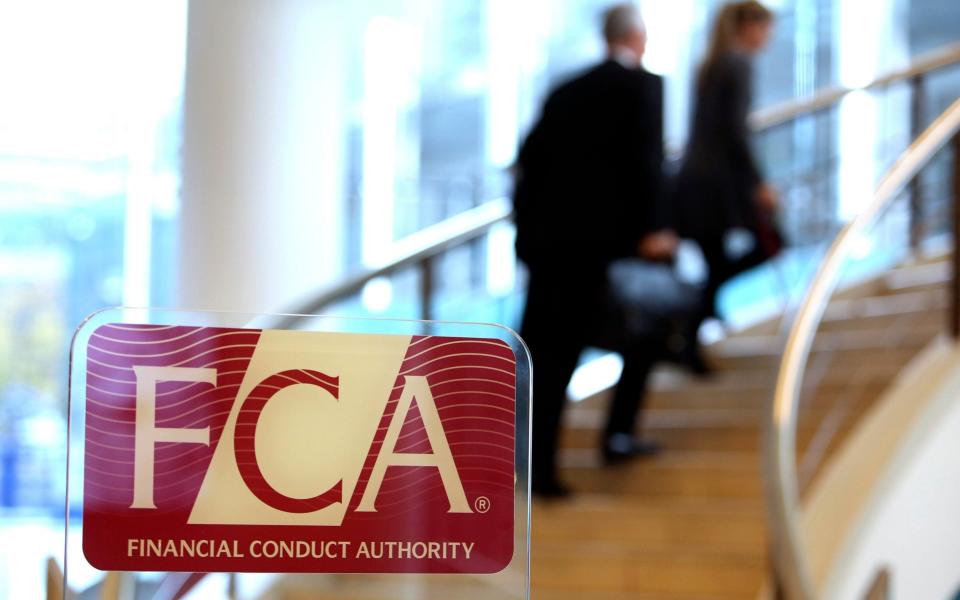Blackmore Bonds promised savers returns that were too good to be true

After no interest payments for months, Mat Noakes and other Blackmore Bond investors had had enough. They pooled their cash and issued a winding-up petition, asking the courts to put the company into liquidation.
“Investors were holding out hope that Blackmore would still pay us even after delays and false promises,” said Noakes. “But I didn’t have confidence – and I was right.”
With the winding-up petition looming and pressure from other lenders building, administrators from Duff and Phelps were called into Blackmore Bond last month.
It leaves about 2,500 investors worried about their roughly £45m invested in the firm, would-be purchasers waiting for homes, and reignites questions about regulation of the mini-bond market following the collapse of London Capital and Finance (LCF), many of whose investors also invested in Blackmore.
“There are a lot of nice people out there that don’t deserve to lose money like this,” said Noakes, who runs a Facebook group for investors. The spotlight is now on Blackmore’s directors, Phillip Nunn and Patrick McCreesh, whose long history with investment schemes stretches back to at least 2009 when they set up the financial consultancy Nunn McCreesh.
According to an Insolvency Service investigation from 2015 into a different company, the pair’s early work included drumming up leads for Jackson Francis Ltd, an introducer for the Capita Oak Pension Scheme.
Capita Oak is now under investigation by the Serious Fraud Office as part of a major investment fraud investigation. Nunn says at the time they provided leads for advisers throughout the UK, and there was no suggestion of wrongdoing against the pair.
Nunn and McCreesh set up mini-bond seller Blackmore Bond in 2016 as a subsidiary to Blackmore Group – the “bespoke investment house” they set up three years earlier.

Blackmore Bond ploughed bondholders’ money into UK house-building, luring investors with annual returns of 9.9pc across five years. Bondholders were told that leaving money in the bank at a time of low savings rates would mean “losing money in real terms,” according to marketing materials for 2018 seen by The Telegraph.
Money poured in, with the company raising £25.4m during 2017, which it ploughed into smart developments across the UK. It signed up to Help to Buy, meaning their homes could be sold to prospective buyers funded by the government subsidy scheme.
“It has been an incredibly exciting year,” bosses said in the accounts for July 2016 to December 2017, the only accounts they would ever file. They aimed to raise £100m, wanted to become one of the UK’s top house-builders, and moved offices from Manchester to Mayfair.
Yet concerns had already been raised. In March 2017, Paul Carlier, a former banker, had written to the Financial Conduct Authority’s (FCA) whistle-blowing arm to raise concerns about the marketing of Blackmore’s investments by another firm, Amyma.
Carlier, who said he could overhear Amyma staff in the office next to his, claimed the firm was “pushing all manner of … bonds to pensioners, citing them as ‘guaranteed by one of the worlds [sic] biggest banks.’ ”
Amyma staff would laugh after telling customers that its application for FCA authorisation was being processed, he claimed. But neither Blackmore nor its mini-bonds were regulated by the FCA.
The mass marketing of speculative mini-bonds to retail customers was eventually banned in January in the wake of the collapse of LCF, which went bust in January 2019 owing about £236m to 11,700 investors.

Blackmore had stopped accepting new investors in April 2019, saying it had met its investment goals. Warning lights started flashing in July when the company was late with an interest payment. Two missed payments followed and reports emerged of delays at building sites. Nunn and McCreesh made reassuring noises, blaming a slow housing market.
Between July 2016 and December 2017, Blackmore paid £5.1m in fees to the marketing firm Surge Financial. The business, run by 44-year-old former policeman Paul Careless, was also used by LCF.
Management fees and charges amounting to almost £1.2m were paid to Blackmore Group; Nunn and McCreesh were paid £50,000 each.
Surge says it is a third-party supplier of outsourced marketing services and never handled client money. It notes Blackmore had an FCA-regulated partner, Northern Provident, which signed off all marketing materials and financial promotions.
Blackmore also raised money against properties, including West One Loan as recently as April this year. Lenders have been given security against assets, likely pushing bondholders down the queue. Hopes are now on Blackmore’s insurance policy with Costa Rica-based Northernlight Surety Company, which is designed to pay bondholders what they are owed if the assets are not enough.
Bondholder Lisa Bartal, 53, who cares for her seriously ill husband at home in Wales, is among those left in the lurch. “I ran it past the bank; they said it looks like a great investment and it’s in property, property never goes down,” she recalled.
With questions mounting over Blackmore, Nunn and McCreesh’s wider Blackmore Group is trading as normal. Last week the pair said Blackmore Group had struggled due to external factors affecting the property market. They said they believed they had found a way to keep the business afloat, but it was not approved by the security trustee.
“We would like to apologise to all bondholders and we will give our support to the administrators to achieve maximum return for everyone affected,” they added. For bondholders, it cannot come soon enough.
Additional reporting: Michael O’Dwyer
